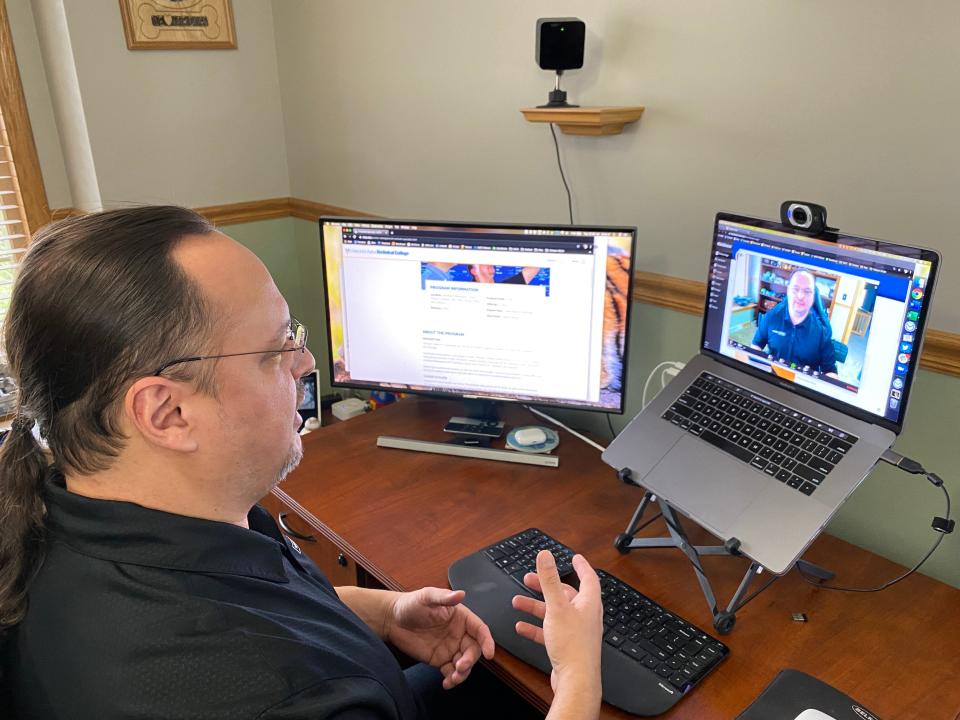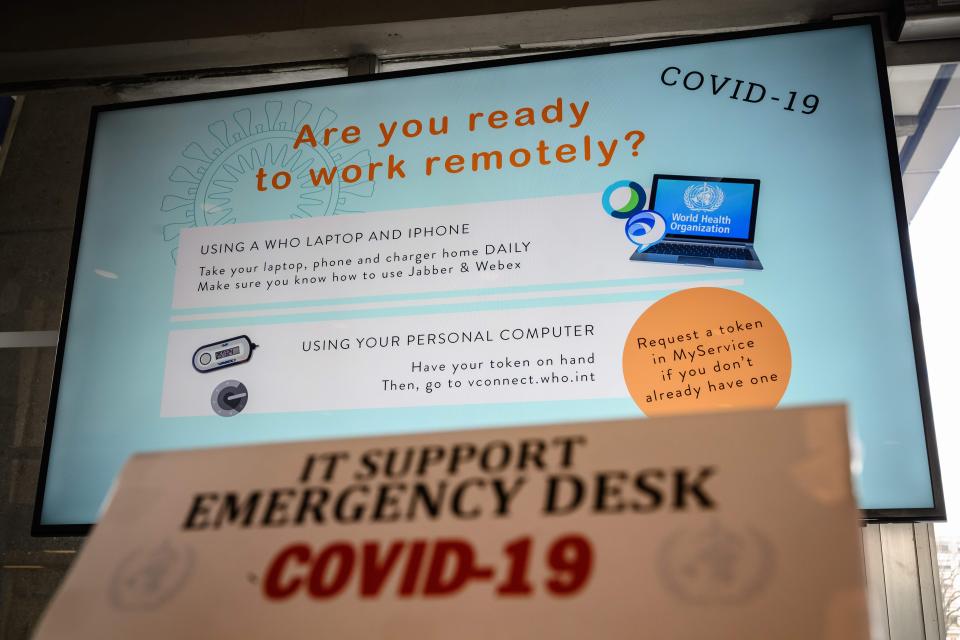Working from home during coronavirus can be, well, hard work
Over the past few months, businesses have been are encouraging their employees to work from home to slow the spread of COVID-19.
Several tech companies, including Google and Twitter, have urged employees to stay away from offices and work remotely.

“Some of it is uncharted territory. It’s one thing to work from home and answer some emails or do a few spreadsheets, but if you’re trying to run something like a complex engineering program, that changes everything,”said Brian Kirsch, an information technology instructor at Milwaukee Area Technical College.

Telling people to simply stay out of the office and work from their kitchen table or a coffee shop is easier said than done. Not every company offers the resources and training, or even the bandwidth, to support a mass exodus of employees.
“The biggest challenge is taking what you had for maybe five or ten percent of your staff and applying it to everyone. It’s thinking about solutions and scaling them up,” Kirsch said.
“What you are seeing is a lot of companies struggling with this overnight," he added.
Fortunately, there are many cloud-based solutions. And since the coronavirus quarantines began in China, some software providers have responded with free business licenses.
Cisco WebEx, for example, offered free unlimited usage for up to 100 users and includes a free 90-day license to new customers. LogMeIn offered free Emergency Remote Work Kits to its current customers for 90 days. Microsoft Teams has expanded the free version of its collaboration software.
The software for working remotely is readily available, though some things, such as transferring an entire office’s phone calls to a remote number, are more difficult.
“If you have a traditional phone system … all of the calls might go to one person,” said Tom Lison, general manager of Milwaukee PC in Appleton.
“The computer side of things is easy. The phones can be the tougher portion,” Lison said.
In addition to having remote-access software, there are other ways to make working from home easier.
Working or learning from home: Telecoms give boost in bandwidth to keep us online
Think you are ready for a new router?: First, try these free home Wi-Fi fixes
You need adequate bandwidth, meaning high-speed internet access, where you’re expected to work. Don’t count on a Starbucks or McDonald’s being enough, especially if it’s crowded and everyone is online at once.

One option is to purchase a Wi-Fi hotspot, which will provide an internet connection anywhere you have service and is more secure than a public hotspot. Another helpful tool is a Wi-Fi extender, which will carry a wireless signal to otherwise dead zones in your house.
At-home workers should redo their passwords into something stronger and be more mindful of online practices and phishing scams. Use multi-authentication tools as a way to keep from being hacked.
For additional online security, a “virtual private network” is helpful. And during a time of crisis, be especially alert to scams, said Jeremy Edson, director of information security at Marquette University.
“With any major incident, there will be people who are going to try and take advantage of the situation. It’s very important to thoroughly vet any caller, any email, any website that’s asking for money,” Edson said.
There are company culture issues in working remotely and management must acknowledge that people are probably working just as hard as if they were at the main office.
Some people actually work longer hours than they normally would, worried that their boss thinks they’re slacking.
And be patient with people not familiar with the technology.
Marquette suspended all classroom-based instruction around spring break so that faculty have time to adapt their curriculum for online presentation.
“Working at a Jesuit institution, we have Jesuits who teach theology with a Bible and a piece of chalk. Their technology has not changed for (online) lecturing,” Edson said.
If there’s some good to come from all of this, it’s that many people will be better prepared for the next crisis.
“This is going to force everyone to be a little more flexible, and that can help us in the future,” Kirsch said.
“You’ve got to take it with a healthy dose of preparedness, caution and commonsense. And that’s for whether it’s having a little extra food at home or having your laptop with you when some of this starts. Download a few extra files you need onto a flash drive and take home that folder you might be working on for the next week,” he added.
USA TODAY contributed to this article.
This article originally appeared on Milwaukee Journal Sentinel: Coronavirus: Remote access software, online tools help work from home

